Related Research Articles
Dan Simmons is an American science fiction and horror writer. He is the author of the Hyperion Cantos and the Ilium/Olympos cycles, among other works that span the science fiction, horror, and fantasy genres, sometimes within a single novel. Simmons's genre-intermingling Song of Kali (1985) won the World Fantasy Award. He also writes mysteries and thrillers, some of which feature the continuing character Joe Kurtz.

Michael John Moorcock is an English writer, particularly of science fiction and fantasy, who has published a number of well-received literary novels as well as comic thrillers, graphic novels and non-fiction. He has worked as an editor and is also a successful musician. He is best known for his novels about the character Elric of Melniboné, which were a seminal influence on the field of fantasy in the 1960s and 1970s.
The Saint is the nickname of the fictional character Simon Templar, featured in a series of novels and short stories by Leslie Charteris published between 1928 and 1963. After that date other authors collaborated with Charteris on books until 1983; two additional works produced without Charteris's participation were published in 1997. The character has also been portrayed in the franchise The Saint, which includes motion pictures, radio dramas, comic strips, comic books, and three television series.

John Crowley is an American author of fantasy, science fiction, historical fiction, and non-fiction. Crowley studied at Indiana University and has a second career as a documentary film writer.

Kate Wilhelm was an American author. She wrote novels and stories in the science fiction, mystery, and suspense genres, including the Hugo Award–winning Where Late the Sweet Birds Sang. Wilhelm established the Clarion Workshop along with her husband Damon Knight and writer Robin Scott Wilson.
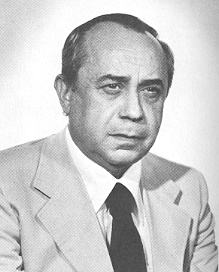
Leonardo Sciascia was an Italian writer, novelist, essayist, playwright, and politician. Some of his works have been made into films, including Porte Aperte, Cadaveri Eccellenti, Todo Modo and Il giorno della civetta. He is one of the greatest literary figures in the European literature of the 20th century.
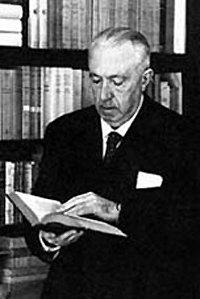
Carlo Emilio Gadda was an Italian writer and poet. He belongs to the tradition of the language innovators, writers who played with the somewhat stiff standard pre-war Italian language, and added elements of dialects, technical jargon and wordplay.
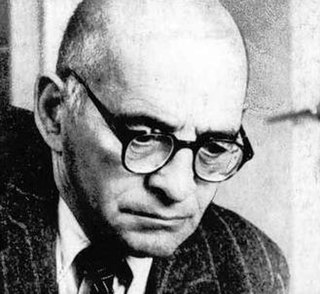
Leopold Perutz was an Austrian novelist and mathematician. He was born in Prague and was thus a citizen of the Austro-Hungarian Empire. He lived in Vienna until the Nazi Anschluss in 1938, when he emigrated to Palestine.

Francesco Rosi was an Italian filmmaker, screenwriter and theatre director. His film The Mattei Affair won the Palme d'Or at the 1972 Cannes Film Festival. Rosi's films, especially those of the 1960s and 1970s, often appeared to have political messages. While the topics of his later films became less politically oriented and more angled toward literature, he continued to direct until 1997, his last film being the adaptation of Primo Levi's book, The Truce.
Franco Lucentini was an Italian writer, journalist, translator and editor of anthologies.

The Day of the Owl is a 1968 Italian–French crime drama film directed by Damiano Damiani, based on the 1961 novel of the same name by Leonardo Sciascia, adapted for the screen by Damiani and Ugo Pirro. It stars Franco Nero, Claudia Cardinale, and Lee J. Cobb. Set in a small Sicilian town, the story follows a Carabinieri chief investigating a murder, hampered by the deep-seated presence of the Mafia that perpetuates a culture of silence.
A Simple Story may refer to:

Alberto Bevilacqua was an Italian writer and filmmaker. Leonardo Sciascia, an Italian writer and politician, who read Bevilacqua's first collection of stories, The Dust on the Grass (1955), was impressed and published it. Mario Colombi Guidotti, responsible for the literary supplement of the Journal of Parma, began to publish his stories in the early 1950s.
Emidio Greco was an Italian film director and screenwriter, best known for the 1974 film Morel's Invention.

Carmine Abate is an Italian writer. He has written numerous short stories, novels and essays, mainly focusing on issues of migration and the encounters between disparate cultures.
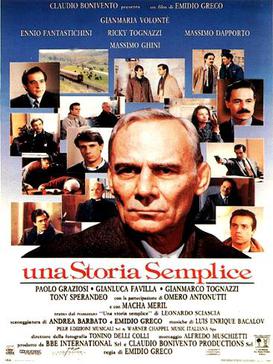
A Simple Story is a 1991 Italian drama film directed by Emidio Greco. It is based on the novel with the same name written by Leonardo Sciascia. It premiered at the 1991 Venice International Film Festival, in which it entered the main competition. The film was awarded with a Nastro d'Argento for best screenplay, two Globi d'oro for best film and best screenplay and a Grolla d'oro for best actor to the ensemble cast.
Una storia semplice may refer to:
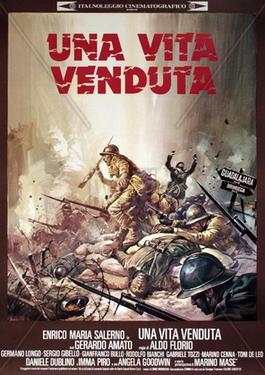
A Sold Life is a 1976 Italian war-drama film written and directed by Aldo Florio and starring Enrico Maria Salerno and Gerardo Amato. It is loosely based on the novella L'antimonio by Leonardo Sciascia. For his performance in this film Gerardo Amato won the Grolla d'oro for best new actor.
Maria Messina was an Italian writer.

Sellerio Editore is an Italian publisher founded in 1969 in Palermo, by Elvira Giorgianni and her husband Enzo Sellerio, encouraged by the writer Leonardo Sciascia and the anthropologist Antonino Buttitta.
References
- ↑ Matteo Collura (2 November 2010). Sicilia sconosciuta. Rizzoli. ISBN 978-8858606667.
- ↑ Gianni Bonina (15 June 2012). "Il Caravaggio rubato dalla cronaca al mito". La Repubblica . Retrieved 11 March 2014.
- ↑ Roberto Chiti; Enrico Lancia; Roberto Poppi (1991). Dizionario del cinema italiano: I Film. Gremese Editore. ISBN 8884401372.
- ↑ Di Martino, Emilia (2018). "Images de mafia à cheval sur trois cultures : Una storia semplice de Leonardo Sciascia et ses traductions espagnole, française, anglaise". Poli-femo. 15–16: 145.